
THE MOST REMARKABLE aspect of the fastest marathoner in history is how unremarkable - and how accessible - his training is. Eliud Kipchoge has the best resources in the world at his disposal; but rather than relying on treadmills that cost more than a Lexus, or recovery devices worthy of NASA missions, he follows simple training tenets that maximise how he recovers, what he eats, his mindset, and the conditioning he does after his runs. We talked to Kipchoge and the team at his Global Sports Communication training camp in Kaptagat, Kenya, as well as outside experts, to find out how anyone can apply his strategies.
1 SLEEP LIKE YOUR RUN DEPENDS ON IT
ELIUD KIPCHOGE SLEEPS up to nine hours at night, often also taking an hour-long midday nap. Most of us don't have the time or the 190km weekly workload to clock that much shut-eye, but we can still benefit from Kipchoge's sleep hygiene cues.
At least 30 minutes before bed, he turns off or puts down all electronics. The habit reduces his exposure to blue light, known to delay the release of melatonin, leading to a decrease in sleepiness, says Dr Kannan Ramar, past president of the American Academy of Sleep Medicine. Then, instead of scrolling through social media (he prefers Facebook), Kipchoge winds down by reading at least two chapters of a book.
"If I have enough sleep, my body and my mind are free of stress and ready to go with the programmes," says Kipchoge.
While you're asleep, your body is doing more than resting. Crucially, your pituitary gland releases growth hormone, which helps your muscles repair and grow, says Ramar.
This story is from the {{IssueName}} edition of {{MagazineName}}.
Start your 7-day Magzter GOLD free trial to access thousands of curated premium stories, and 9,000+ magazines and newspapers.
Already a subscriber ? Sign In
This story is from the {{IssueName}} edition of {{MagazineName}}.
Start your 7-day Magzter GOLD free trial to access thousands of curated premium stories, and 9,000+ magazines and newspapers.
Already a subscriber? Sign In

LONGOVERDUE PRAISE FOR THE RUNNING SINGLET
In the last decade, the running singlet once reserved for amateur competitors and professional athletes - has gone mainstream, not only on race day but also on everyday runs.

RISE OF THE 'ILLEGAL RUNNING SHOES
Banned shoes emerged at a basketball court long before they found their way onto a marathon course.

CRACKING THE SLEEP CODE
Are you an early bird or a night owl? Perhaps you've assigned yourself another animal after completing an internet quiz. Research is shedding light on the link between well-being and circadian predisposition, but there's no need to rewire yourself. Learn to lean into your biology with our guide.
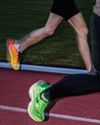
THE SECRET TO SPEED IS IN YOUP BLOOD
Some of the world's best runners credit this unorthodox Norwegian training method for their success. Is it right for you?
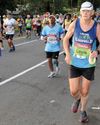
THE MIND OF MASSYN
IN 2024, LOUIS MASSYN WILL ATTEMPT HIS 49TH COMRADES MARATHON AND HE'S LEARNT PLENTY OF LESSONS ALONG THE WAY. HERE'S THE STORY OF HIS AMAZING JOURNEY.

TAKING CHARGE
OUTSPOKEN AND AMBITIOUS, NEW COMRADES RACE MANAGER (AND FORMER WINNER) ANN ASHWORTH IS LOOKING TO TAKE THE RACE INTO THE FUTURE.
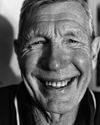
A HALF CENTURY OF COMRADES
THIS YEAR, BARRY HOLLAND WILL BE AIMING TO FINISH HIS 50TH CONSECUTIVE COMRADES MARATHON. THIS IS WHAT HAS INSPIRED HIM.
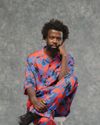
MY RUNNING LIFE
ORDINARY RUNNERS doing EXTRAORDINARY THINGS
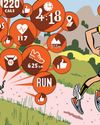
Ageing In The Age Of Strava
RECENTLY MY BUDDY Sean sent a text message that said, “Been running a lot of 5:30–6:00 kays early. It feels pretty nice at that pace.”

How To Start A Run When You Don't Feel Like It
I'VE ALWAYS FELT validation when reading a story about writers and their love of procrastination.